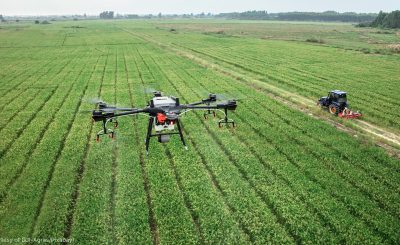Views: 15
Landed Property Is The Safest Way To Save Money In Nigeria.

In many countries like Nigeria, the goal of having landed property investment, or in our case, “land hacking,” is to use it to make money. The main idea is to buy landed property and turn it into something that generates income. But, for many people, there are challenges. We’re often taught to rent long-term, buy a home in the suburbs or city, or follow a standard approach. We’re not used to working with land. We don’t know how to develop it, and we might not want to deal with all the details. But are landed properties the safest way to save money? In this article, we will learn the benefits of having landed property investment and why you should look out for more real estate opportunities.
- Land Property Hacking
Investing in landed properties can be one of the best ways to generate income from your real estate portfolios, and one area you can take advantage of is having landed property investment and land hacking. This is where you buy raw land, develop it by building a main structure, and turn it into a destination that you can rent out to visitors through different platforms.
It’s a great way to make money and the safest way to save it. The good part about it is that you not only build equity but also create a steady cash flow from monthly rentals.
- Rehab and Model
The second thing is to rehab and remodel. You can buy a property, fix it up, and remodel it. By rehabbing it, you are building both equity and cash flow, just like with the land hacking projects. Also, you can buy existing income-generating property. And this is not buying another rental, let’s say something like an orchard, a farm, or even an established bed and breakfast. The benefit of buying these types of revenue-generating businesses is that they open up many loan options because they’re already cash-flowing.
You can lease the land back to a farmer or another one who manages everything. For example, assuming you’re considering a property with about 120 acres of apples, cherries, and pears. Since you don’t have the equipment, knowledge, or time to run a farm, part of the purchase deal can include leasing the land back to the farmer. He continues running his farm while you own the land.
This allows you to still have access to the remaining 20-30 acres that aren’t being farmed, and you’re generating income from the lease. This approach doesn’t only apply to orchards or farms. If you own land with good soil, sunlight, or a water source, you can lease it out to farmers. They’ll handle the farming, and you can earn money from leasing your land on a per-acre basis.
- Leasing
Another way of saving money from landed property investment while still generating income from your real estate portfolio is leasing out extra land to others who might need it. This could be ranchers, farmers, or even people needing space for storage. If you have a large shop or open space, people are always looking for storage. That’s something you can consider as well.
This is pretty common, especially in rural areas. It’s something you can think about. If you connect with the right people in the area you’re looking at, you can find folks who want to use your land for grazing cattle, goats, sheep, or cassava crops.
- Start a low-maintenance operation
Depending on your location in Nigeria, this could be a cassava farm, a pumpkin patch, or even an oil palm. Growing them on your property doesn’t require much maintenance since they naturally thrive here, making it a good source of passive income.
The downside is that you’ll have to wait for the crops to mature, which could take a while. You also want to make sure you’re growing a species that will be valuable in your lifetime. But even if the trees aren’t fully mature yet, the land still gains value. For example, if you plant 30 acres of palm fruit and it takes 5 years to mature, but it’s only year 2, the property is still worth more. Palm fruit, pumpkin patches, or similar ventures are great if you want something low-maintenance that can bring in extra income.
- Mitigation credits and water rights.
This is more for commercial developers, but it’s something to watch. If someone wants to develop on marshland like that in Yobe state, they have to buy mitigation credits from someone who owns protected marshland. The idea is that the protected land won’t be developed, but those credits allow you to develop on your own marshland.
You can acquire mitigation credits or water rights and sell them to people looking to build. It’s similar to conservation areas, where developers set up conservation zones and sell the credits to commercial builders. If you own or inherit a large piece of land with marshland, water features, or even endangered species, you might be able to turn that land into mitigation credits and make a significant profit.
- Splitting lots
When looking at land, especially raw land or properties with buildings, you might find parcels with multiple tax lots. This means there’s a chance to divide the land. You can work with the county to get surveys, engineering, road access, and other approvals to split one parcel into several tax lots. Then, you can sell those lots.
This can be very beneficial because you can increase your value. Each time you split one lot into two, you could potentially double your money. Developers often do this—they buy a large piece of land, divide it into smaller lots, and then sell those lots or build on them. You can do the same thing on a smaller scale.
- Flipping land
You buy a piece of raw land, run utilities to it, get the necessary permits, and make sure there’s road access. Then, you sell it. The idea is to take a piece of raw, unattractive land and increase its value by adding utilities, like power, water, and internet, and making sure there’s access, such as a paved or gravel road.
People are willing to pay more for land that’s already prepared, especially if it’s in a good location. This approach is common in commercial and multi-family real estate, but it’s less common in residential real estate. Still, you can make money if you know the market and what you’re doing.
Conclusion
So, these are some of the ways you can save and make money from land today in Nigeria and in any part of the world! The best time to invest in land was yesterday, another good time is today, and procrastination is always dangerous.
By kingkentus








You must be logged in to post a comment.